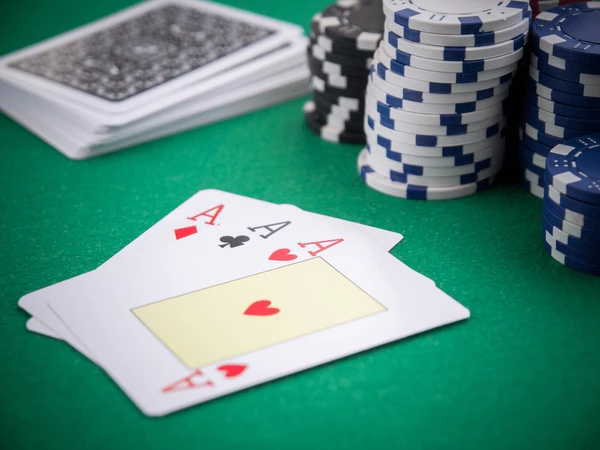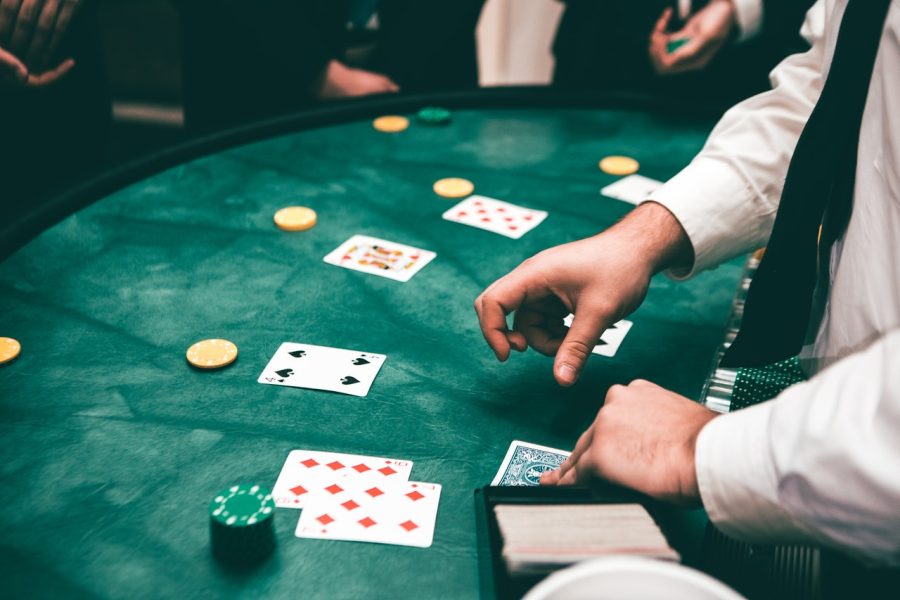For centuries, gambling has been intertwined with superstition. Whether it’s rolling dice, flipping cards, or spinning a roulette wheel, luck is an unpredictable force. This uncertainty has given birth to a world of bizarre rituals and deeply held beliefs. From lucky charms to strict pre-game routines, gamblers across the globe rely on superstition to influence their fate. While logic and probability dictate the odds, many players believe that unseen forces hold just as much power over their winnings.

The Power of Lucky Charms and Objects
Some gamblers refuse to step onto a casino floor without their trusty lucky charm. It might be a rabbit’s foot, a special coin, or even an article of clothing believed to bring good fortune. The idea that certain objects attract luck is ancient, stemming from folklore and cultural traditions.
One of the most famous lucky charms in gambling is the four-leaf clover, long associated with good fortune. In Asian cultures, red-colored items are considered auspicious, with some players carrying red envelopes or wearing red underwear to boost their luck. Others swear by carrying a specific item, like a lucky pen or a small figurine, believing that its presence alone can change the tides of fortune.
The Forbidden Acts That Could Bring Bad Luck
Just as some objects bring luck, certain actions are believed to bring misfortune. Many gamblers have strict rules about what they should never do at a casino.
One widely known superstition is that counting money at the table is a surefire way to lose. Whether playing poker, blackjack, or roulette, some believe that checking their winnings too soon will curse them for the rest of the night. Similarly, whistling at the table is considered bad luck, as it’s said to “blow away” one’s fortune.
In some Asian cultures, the number four is considered extremely unlucky because its pronunciation is similar to the word for “death.” Gamblers avoid anything associated with the number, from playing at a table labeled with a four to placing bets that include the digit. In contrast, the number eight is seen as lucky, symbolizing prosperity and good fortune.
The Rituals Before Placing a Bet
Many gamblers perform small rituals before they begin playing, convinced that these actions will influence their results. Some players have specific routines they follow before stepping into a casino, such as walking a certain path or entering through a particular door.
A common practice among dice players is to blow on the dice before rolling, a superstition made famous in Hollywood movies. Some believe that blowing on the dice removes bad luck and increases the chances of rolling a favorable number. Slot machine players often have their own quirks, like tapping the machine a certain way or rubbing the screen before hitting the spin button.
Unusual Casino Superstitions from Around the World
Different cultures have their own unique beliefs when it comes to gambling luck. In China, gamblers avoid washing their hands before playing, as they believe it washes away good fortune. In contrast, some Western players do the opposite, washing their hands before a game to “cleanse” bad energy.
In Italy, placing a hat on a bed is believed to bring bad luck, and some Italian gamblers extend this belief to casinos, avoiding placing anything on a chair or seat before playing. In Russia, sitting quietly for a few minutes before leaving for the casino is thought to bring luck, allowing a player to “collect their thoughts” and channel good fortune.
Lucky and Unlucky People: The Psychology of Superstition
While superstition may seem irrational, psychology plays a big role in why people cling to these beliefs. The concept of “lucky” and “unlucky” individuals is prevalent in gambling culture. Some players feel they are naturally blessed with good luck, while others believe they must work to attract it.
Gamblers who have a big win early in their casino visit are more likely to believe they are on a “lucky streak” and continue betting aggressively. On the other hand, those who start with losses may adopt rituals or change their behaviors in an attempt to shift their fortunes. This tendency is known as the “gambler’s fallacy”—the mistaken belief that past events influence future outcomes in games of chance.
Do Superstitions Really Affect Gambling Outcomes?
Logically speaking, superstitions should have no effect on casino games that rely purely on chance. A roulette wheel has no memory, dice rolls are independent events, and slot machines use random number generators to determine outcomes. However, belief in superstition can impact a gambler’s confidence, leading to a more positive mindset that might indirectly influence their decisions.
Casinos, aware of the deep connection between gambling and superstition, often cater to these beliefs. Many gambling establishments in Asia avoid using the number four in their floor plans, while some Las Vegas casinos offer “lucky” red-colored chips for high rollers. Whether or not these superstitions hold any real power, they remain an inseparable part of casino culture, influencing players’ behaviors and rituals worldwide.

